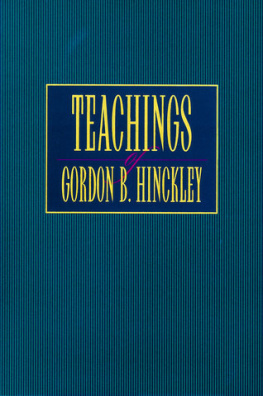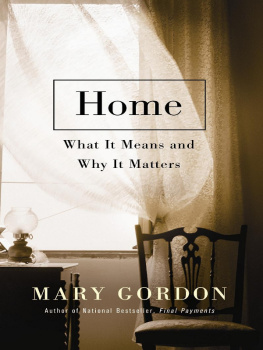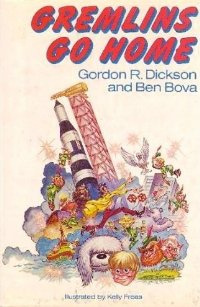The Evolution of an English Town
Being the story of the ancient town of PICKERING in Yorkshire from Prehistoric times up to the year of our Lord Nineteen Hundred & 5
BY GORDON HOME
TO ALL THOSE WHO HAVE GIVEN THEIR GENEROUS HELP IN THE COMPILATION OF THIS BOOK
PREFACE
The original suggestion that I should undertake this task came from the Vicar of Pickering, and it is due to his co-operation and to the great help received from Dr John L. Kirk that this history has attained its present form. But beyond this I have had most valuable assistance from so many people in Pickering and the villages round about, that to mention them all would almost entail reprinting the local directory. I would therefore ask all those people who so kindly put themselves to great trouble and who gave up much time in order to help me, to consider that they have contributed very materially towards the compilation of this record.
Beyond those who live in the neighbourhood of Pickering, I am particularly indebted to Mr Richard Blakeborough for his kind help and the use of his invaluable collection of Yorkshire folklore. Mr Blakeborough was keen on collecting the old stories of hobs, wraithes and witches just long enough ago to be able to tap the memories of many old people who are no longer with us, and thus his collection is now of great value. Nearly all the folklore stories I am able to give, are those saved from oblivion in this way.
I have also had much help from Mr J. Romilly Allen and from Mr T.M. Fallow of Coatham, who very generously gave his aid in deciphering some of the older records of Pickering.
To Professor Percy F. Kendall who so kindly gave me permission to reproduce his map showing the Vale of Pickering during the Glacial Epoch, as well as other valuable help, I am also greatly indebted; and I have to thank Professor W. Boyd Dawkins for his kindness in reading some of the proofs, and for giving valuable suggestions.
GORDON HOME.
EPSOM, May 1905.
CONTENTS
CONCERNING THOSE WHICH FOLLOW
THE FOREST AND VALE OF PICKERING IN PALOLITHIC AND PRE-GLACIAL TIMES
THE VALE OF PICKERING IN THE LESSER ICE AGE
THE EARLY INHABITANTS OF THE FOREST AND VALE OF PICKERING
HOW THE ROMAN OCCUPATION OF BRITAIN AFFECTED THE FOREST AND VALE OF PICKERING, B.C. 55 TO A.D. 418
THE FOREST AND VALE IN SAXON TIMES, A.D. 418 TO 1066
THE FOREST AND VALE IN NORMAN TIMES, A.D. 1066 TO 1154
THE FOREST AND VALE IN THE TIME OF THE PLANTAGENETS, A.D. 1154 TO 1485
THE FOREST AND VALE IN TUDOR TIMES, A.D. 1485 TO 1603
THE FOREST AND VALE IN STUART TIMES, A.D. 1603 TO 1714
THE FOREST AND VALE IN GEORGIAN TIMES, A.D. 1714 TO 1837
THE FOREST AND VALE FROM EARLY VICTORIAN TIMES UP TO THE PRESENT DAY, A.D. 1837 TO 1905
Concerning the Villages and Scenery of the Forest and Vale of Pickering
Concerning the Zoology of the Forest and Vale
Index
THE PURPOSE OF THE FOOTNOTES
Having always considered footnotes an objectionable feature, I have resorted to them solely for reference purposes. Therefore, the reader who does not wish to look up my authorities need not take the slightest notice of the references to the footnotes, which in no case contain additional facts, but merely indications of the sources of information.
LIST OF ILLUSTRATIONS
Pickering Church from Hall Garth (Coloured)
INTRODUCTION
Every preface in olden time was wont to begin with the address "Lectori Benevolo"--the indulgence of the reader being thereby invoked and, it was hoped, assured. In that the writer of this at least would have his share, even though neither subject, nor author, that he introduces, may stand in need of such a shield.
Local histories are yearly becoming more numerous. In few places is there more justification for one than here.
I. The beauty of the scenery is not well known. This book should do something to vindicate its character. There is no need on this point to go back to the time of George III.'s conversation at the leve with Mrs Pickering's grandfather. "I suppose you are going back to Yorkshire, Mr Stanhope? A very ugly country, Yorkshire." This was too much for my grandfather--(the story is told in her own words)--"We always consider Yorkshire a very picturesque country." "What, what, what," said the King, "a coalpit a picturesque object! what, what, what, Yorkshire coalpits picturesque! Yorkshire a picturesque country!" Only within the last few months one of us had a letter refusing to consider a vacant post: the reason given being that this was a colliery district. There is no pit to be found for miles. Many can, and do, walk, cycle, or motor through the Vale. Others, who are unable to come and see for themselves, will, with the help of Mr Home, be in a better position to appreciate at its true worth the charm of the haughs and the changing views of the distant Wolds, and of the russet brown or purple expanse of the upland moors.
1 "Memoirs of Anna M.W. Pickering."
II. The stranger on a visit, no less the historian or antiquary, has till now often been puzzled for a clue, and ignorant where to turn for authentic data, would he attempt to weave for himself a connected idea of the incidents of the past and their bearing on the present. There has been no lack of material buried in ancient records, or preserved in the common oral traditions of the folk: but hitherto no coherent account that has been published. Speaking for ourselves, we are glad the task of dealing with the "raffled hank" of timeworn customs and obscure traditions as well as the more easily ascertained facts of history is falling to the author's practised pen. For the future, at any rate, there should be less difficulty in understanding the manner of life and method of rule with which past and present generations belonging to the Town of Pickering have been content to dwell.
III. "Foreigners" Our readers will learn there is some reason for this attachment; and may, like some of us, who tho' born elsewhere claim adoption as citizens, fall under the witchery of its spell.
1 C.R.L. Fletcher in his "History of England" tells us that townsmen of the thirteenth century were wont to brand their brethren in all the neighbouring towns as "foreigners." Those we call foreigners, they called aliens. The expression itself was made use of not long ago at a meeting of the Urban Council.
2 R.B. Cunninghame Graham, "Hernando de Soto."
May the venture to compass these ends succeed, to use an old saying, "ez sartin ez t' thorn-bush."
1 It used to be the custom for the parson to collect the tithe by placing a branch of thorn in every tenth stook; he choosing the stooks and sending his cart along for them. R. Blakeborough, "Yorkshire Humour and Customs."
E.W.D.
The Vicarage, Pickering.
25th September 1904.
THE EVOLUTION










